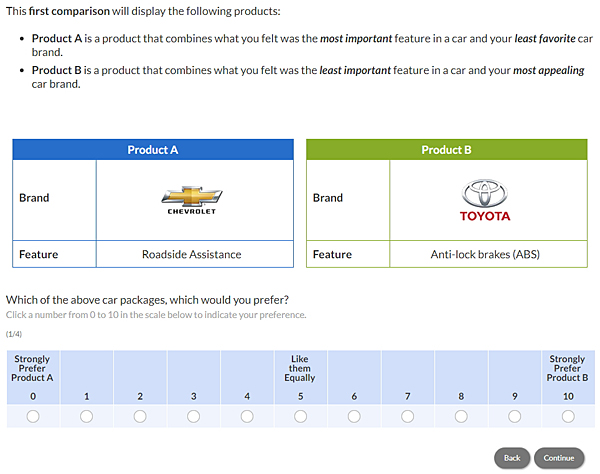ACBC (Adaptive Choice Based Conjoint)
Adaptive Choice Based Conjoint is the most advanced conjoint/choice analysis. It is used for studying how people make decisions regarding complex products or services. ACBC is a new approach to preference modeling that leverages the best aspects of CBC (Choice-Based Conjoint) and ACA (Adaptive Conjoint Analysis). An Adaptive Choice interview is an interactive experience, customized to the preferences and opinions of each individual.
ACA (Adaptive Conjoint Analysis)
Adaptive Conjoint is designed for situations in which the number of attributes exceeds what can reasonably done with more traditional methods (such as CBC or traditional conjoint-CVA). ACA focuses on the attributes that are most relevant to the respondent and avoids information overload by focusing on just a few attributes at a time. ACA is typically used for product design and segmentation research, where the number of attributes exceeds about six. ACA is not commonly used for pricing research, as it can tend to understate the true importance of price.








































